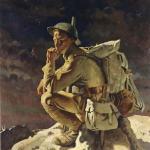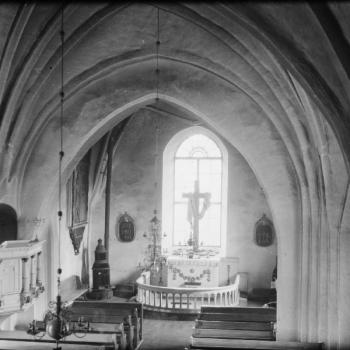It was not supposed to be like this. What do I mean? Back to Kant and his storied ethical consistency for the answer:
Enlightenment is man’s emergence from his self-imposed nonage. Nonage is the inability to use one’s own understanding without another’s guidance. This nonage is self-imposed if its cause lies not in lack of understanding but in indecision and lack of courage to use one’s own mind without another’s guidance. Dare to know! (Sapere aude.) “Have the courage to use your own understanding,” is therefore the motto of the enlightenment.
Laziness and cowardice are the reasons why such a large part of mankind gladly remain minors all their lives, long after nature has freed them from external guidance. They are the reasons why it is so easy for others to set themselves up as guardians. It is so comfortable to be a minor. If I have a book that thinks for me, a pastor who acts as my conscience, a physician who prescribes my diet, and so on–then I have no need to exert myself. I have no need to think, if only I can pay; others will take care of that disagreeable business for me. Those guardians who have kindly taken supervision upon themselves see to it that the overwhelming majority of mankind–among them the entire fair sex–should consider the step to maturity, not only as hard, but as extremely dangerous. First, these guardians make their domestic cattle stupid and carefully prevent the docile creatures from taking a single step without the leading-strings to which they have fastened them. Then they show them the danger that would threaten them if they should try to walk by themselves. Now this danger is really not very great; after stumbling a few times they would, at last, learn to walk. However, examples of such failures intimidate and generally discourage all further attempts. (“What is Enlightenment?”)
Enlightenment, which includes within it a rationalization (and possibly eventual elimination) of belief, was supposed to make each of us accountable to ourselves; we were to overcome “nonage” and take responsibility for our freedom. Freedom, however, has turned out to be a heavy weight. Unbelief has not saved us from our self-opacity, our disguised and deferred longings. Gott ist tot was, even for Nietzsche, a cry of horror as much as of possibility.
This is because Nietzsche understood the pitfalls.
I’m not sure we’ve ever quite recovered from this unexpected turn. Our world was to become more rational, less religious. And yet, here we are—mired in sin as ever. Many of us resent this reality (vide, if you will, reactions to Trump’s elections, the desired return to normalcy, etc.). And, as Nietzsche knew, this resentment can take a multitude of forms: intolerance, blind hatred, an unwillingness to admit our own inconsistency. Thus, we stagger on.
Let us go back, then, to Slovak Catholicism. Why is Slovakia—the more religious half of former Czechoslovakia—more tolerant? Perhaps because it is more agrarian; perhaps because it a formerly colonized margin and thus understands what it means to be outside the metropole. Perhaps Slovaks are just nice, pleasant people. And, yes, perhaps it is because Slovaks have internalized the welcoming challenge that is Christian orthodoxy. It could be any, a few, or all, of these.
There is a historical lesson here: we must be very careful when evaluating why and how other people took the actions they did. Few are Socrates; few are Kant. But there is also a lesson here for ourselves: we pray, I think, to see ourselves as God does, to know that we are loved, yes, but also to see through to our own hearts, to glimpse the whole that so often, when analyzed, seems like fractured parts. Whatever complete being we find in ourselves only begins with an admission of brokenness. Original Sin weighs heavily. And yet, we stagger on.













